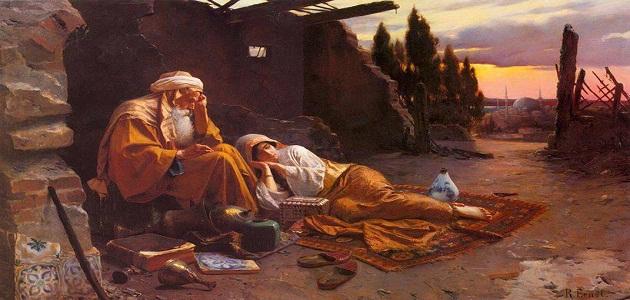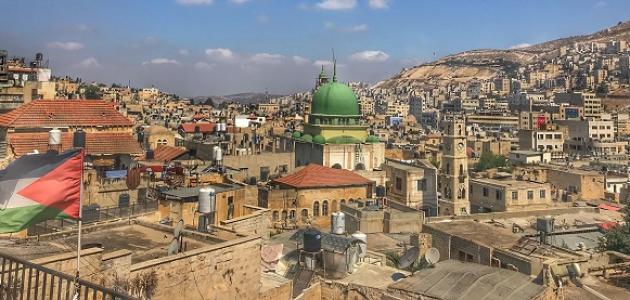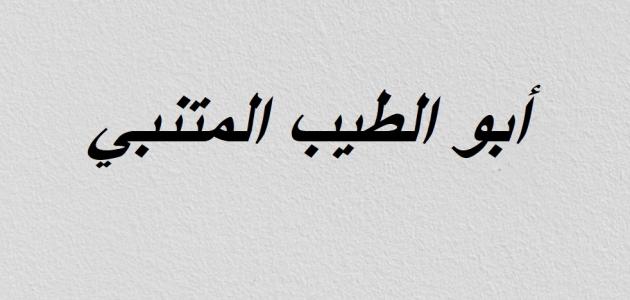Introducing Al-Asmai
Al-Asma'i is Abu Sa'id Abd al-Malik ibn Qareeb, he was born in the city of Basra in Iraq in the year 122 AH / 740 CE. He grew up in turbulent circumstances, and he approached knowledge diligently and actively in Basra, so he learned from Khalil, Abu Amr, Issa bin Omar, and Abu Amr bin Al-Alaa, and soon he became an old man and a linguist, and he surpassed his peers at the time, and many students, such as: Abu Al-Fadl Al-Riyashi, Abu Ubaid, Abu Hashim Al-Sijstan, and Abu Saeed Al-Sukkari.
Al-Asma’i enjoyed a strong memory, and he was a genealogist who memorized a lot, and was familiar with the days of the Arabs, their news, their poems, a sea of language, and an abundance of narration, so his fame reached the ears of Harun Al-Rashid in Baghdad, so he summoned him and made him polite to the prince, and there he emerged in the caliph’s court with regard to mental life The activist, and he was respected in the palace, and after a while he returned to Basra, bringing with him his wealth that he had collected, and spent the rest of his life there. The Book of Persians, the Book of Arrogance, the Book of Facilitator, and others.
The birth of Al-Asmai
Al-Asma'i received Arabic language sciences at the Basra School established by Abi Amr ibn Al-Alaa, and he was one of the prominent ones in it. In the study of natural sciences, animal sciences, and botany, he left sixty books on various sciences.
Read also:A topic on Lotfi ZaghloulAl-Asmai's title
It is noteworthy that Al-Asma’i was named so in relation to his grandfather, “Asmaa”, which means the awakened heart, and the interpretations that refer to the meaning of Al-Asmaa differ, some of them indicate that Al-Asmaa is the specific smooth one, and it is called the silo, as it is said that a man is deaf to denote intelligence and the strength of the heart, and it is called On the man if his ears are small and attached to his head with the deaf, and the woman is deaf, and that is as mentioned by Al-Jahiz, and it is said: “The arrow came out deaf” if his feather was wet with blood and joined, Abu Dhu’ib Al-Hudhali said:
So he threw and was saved from a wailing stare
- An arrow of pride and its feathers stuck together
Al-Asmai's poetry
Introducing Asmaiyat
Al-Asma'iyat is defined as a selected group of ancient Arabic poetry compiled by Al-Asma'i, and it seems that his students or later scholars called it Al-Asma'iyat. In order to differentiate between them and the favorites chosen by Al-Mufaddal Al-Dhabi, and despite that, there was confusion and overlap between them, until some mentioned poems from the favorites as Asma’iyat, and it seems that this matter of mixing is old, or that the copies that the ancients looked at are different from what reached us, because many of them Like Ibn Qutayba and Abi Ubaidah, they mentioned poems and made them chosen by Al-Asma’i even though they are not found in his printed Asma’iyat.
Read also:Information about the life of Fadwa TouqanAl-Asma'iyyat was distinguished as a collection of good ancient pre-Islamic poetry, and some of the poetry of veterans and Islamists. Al-Asma'i - who was known for his abundance of memorization and the quality of choice - chose many poems other than those chosen for them by the owner of the favorites. Ibn al-Ward, Amr ibn Maad Yakrib, Muhalhal ibn Rabi`ah, al-Mutalamis, Mutamim ibn Nuweira, and others, and the number of poets whose verses were chosen reached seventy-two poets, and the number of their poems reached ninety-two poems, and their verses totaled 1,439 verses. The orientalist William Ibn Al-Ward was born in Leipzig, Germany in 1902 AD, then it was published in an edition carefully edited by Ahmed Muhammad Shaker and Abd al-Salam Harun.
Standards of virility poets when Al-Asmai
Al-Asma’i is considered the first to develop a set of characteristics and conditions, to define the features of the poet, the stallion, as he wrote a book in that regard called (The Falhoula of the Poets), and when Abi Al-Hatem Al-Sijistani asked him about the meaning of Al-Fahula, he replied: “It is intended that he has an advantage over others like the advantage of the stallion over the truth.” Thus, Al-Asma'i defined the path of virility in poetry, and he limited it to certain arts of poetry, and classified poets on the basis that they possess virility from others. For his preference among poets.
Read also:How did Imru' al-Qais die?The criteria for virility according to Al-Asma’i are summarized in the following points:
- hair quality: And the quality of poetry for Al-Asmai means moving away from the brutal and strange in speech, and achieving the quality of meanings.
- time: Time for Al-Asma’i is limited to the pre-Islamic time, in the sense that whoever was one of the pre-Islamic poets could be from the stallions, and whoever came out of this era is not considered a stallion. In the Jahiliyyah, they were important, and I do not say anything about them because they are Islamists.
- Hairiness: For Al-Asma’i, abundance means the ability to say good poetry, and it means the poetic energy to give.
- The method of the early poets: Al-Asma’i considers the poetry of the ancients to be one of the criteria for poetic virility and differentiation among poets.
- Saying poetry on all weights: Delving into all the seas of poetry, and regulating them according to their weights is an advantage that is counted for the poet, as it shows his poetic ability and superiority over his peers, and Al-Asma’i praises Al-Asha by saying that “the people of Kufa do not precede anyone over Al-Asha.” rhyme".
- Adjective proficiency: One of Al-Asma'i's criteria for determining the parameters of virility is that the poet should be well-described and good.
- the novel: Al-Asmai says: “The poet does not become a stallion in poetry until he narrates the poetry of the Arabs and hears the news.” Through it, the poet uses knowledge of the virtues and shortcomings of the Arabs and their news, so that he can praise and satirize them in his poetry.
Safir Bulbul sound poem
Al-Asma'i was known for a poem he recited at the court of the Abbasid caliph Abi Jaafar al-Mansur, who put pressure on poets at one point in time, as he memorized the poem when he heard it from the first time, and he had a boy who memorized it from the second time, and a slave girl memorized it from the third time, and the focus of the story revolved around the fact that the caliph would give What was written on it was weighed in gold in the event that the poet recited a poem that was difficult for the caliph to recite, so the poets accepted to recite their poems in the hearing of the caliph, so the caliph would only show that the poem that the poet wrote was said previously, even though the poet is the one who composed it, and after he finishes The poet says his poem recited by the caliph, then he calls both the boy and the maidservant, to recite the poem after him. A poem I would like to recite to you, and I do not think you have heard it before.” So he recited the poem to him, which is:
Nightingale's warbling sound
- Boredom agitated my heart
Water and flowers together
- With the flower of the eyeballs
And you, my lord
- And my master and sire of mine
So how much do you wish me
- Ghazil Aqily
I picked it from his cheek
- Then shyness rose
He said no, no, no, no
- Tomorrow is Mahrouli
And the helmets went wild
- Who did this man?
Vololt vololt
- Woe to me, woe to me
I said don't take it easy
- And between me the pearl is for me
She told him at that time
- He got up and was found by transport
And boys, make me happy
- Coffee is like honey for me
I smelled it with my nose
- Better than pink
In the middle of a sweet orchard
- With flowers and pleasure for me
And the Oud hummed for me
- And the drum is plump, medicine for me
Medicine plump medicine plump
- Medicine, medicine, medicine, medicine for me
And the roof is overdriven and overdriven for me
- And dancing has been good to me
Grill grill and watch
- On my travel paper
And the lunar tweet shouted
- Boredom in ml
And if you see me riding
- On a doggy donkey
He walks on three
- Aranjali walk
And people translate my sentences
- In the market, Qalqalli
And all are cakes, cakes
- Behind me and around me
But you walked away
- out of fear of al-Aqniqli
To meet your king
- Most respected
He orders me to take off
- Red as blood blisters
Walk in it
- Mobbedda for the tail
I am the most brilliant writer
- Ard al-Mawsili district
Organized pieces decorated
- Literature is incapable of me
I say at the beginning
- The sound of whistling bulbuli
And when he finished it, the caliph called the boy and the slave girl, hoping that one of them would memorize the poem, and after the caliph delivered the matter, he said to al-Asma’i: “Bring what you wrote on it, and we weigh it, and we give you its weight in gold.” He replied that he inherited from his father a marble column, on which he wrote the poem, and this The column can only be carried by ten soldiers, and when they weighed it, the minister told the caliph that the poet hiding in front of them was Al-Asma’i, and when he was known in the courtyard of the court, the caliph said: “Would you do that to the Commander of the Faithful, O Asma’i?” He said to him: “O Commander of the Faithful, I have cut off the livelihood of the poets.” By doing this,” and asked him to give the poets in return for what they said, and he answered his request.
Al-Asmai's works
Al-Asma'i left many works, the most important of which are the following:
- Creation of man book.
- The book of races.
- The whisper book.
- Monster or monster book.
- Verb and action book.
- Etymology book.
- The Book of Meanings of Poetry.
- A book whose wording and meaning differ.
- Strange talking book.
- Saddle, bridle, slippers and grill book.
What the critics said about Al-Asmai
Many testified to Al-Asma’i’s abundant intelligence and knowledge, including:
- Sufyan al-Thawri referred to Ibn Munazir’s description of al-Asma’i as “the most memorized of people.”
- Al-Azhari said that “most of his knowledge was on his tongue.”
- Al-Asma’i’s student Ishaq al-Mawsili testified that he “was impressed by the closeness of his tongue to his heart and the ability to memorize it whenever he wanted it.”
- Al-Akhfash reported, “I did not realize anyone more knowledgeable about poetry than behind Al-Ahmar and Al-Asma’i.”
- Abu Al-Tayyib, the linguist, praised Al-Asma’i, saying: “He was the most knowledgeable of the people in the language and taught them poetry.”
- Al-Suyuti mentioned on the authority of Al-Asma’i, “And he was one of the most knowledgeable people in his art.” Ibn Al-Marzbani mentions, “Al-Asma’i was one of the most eloquent of people to refute.”
- Al-Shafi’i witnessed his sincerity in language and in opinion, and he said: “No one expressed the Arabs better than Al-Asma’i’s phrase.”
- Abu Dawud said about him: “Saduq, and he used to be careful to interpret the hadith, just as he was careful to interpret the Qur’an.”
- Al-Mubarrad indicated that Al-Asma'i was a sea of language, and no one like him was known in it, and in the abundance of narration.
- Ibn Katheer said on the authority of Al-Asma’i: “One of the imams of language and grammar, strange and news, salt and anecdotes.”
- Muhammad bin Al-Arabi said; I witnessed Al-Asma'i and he sang about two hundred verses, none of which we knew.
- Ibn Moeen quoted Al-Asma'i that he was one of the most knowledgeable people in his art.
Al-Asmai's death
Al-Asma'i died in Basra, according to the consensus of historians, with the exception of Ibn Khalkan, who mentions that his death was in the city of Marw. As for the year in which he died, the sources differ. “Al-Asma’i died in Basra while I was present, in the year two hundred and thirteen, and Al-Fadl Ibn Ishaq prayed for him.” He mentioned another news and said; “It is said that he died in the year two hundred and seventeen, or the year sixteen.” Al-Khatib al-Baghdadi indicated by saying: “Al-Asma’i died in the year two hundred and sixteen.” Muhammad bin Yahya al-Nadim said; Abu Al-Ainaa told us, he said; We were at the funeral of Al-Asma’i in the year two hundred and fifteen, and it is said that he died in Safar the year two hundred and sixteen, and it was said fourteen or it was said seventeen and two hundred, as Ibn Khalkan explained, and Abu al-Tayyib al-Lughawi mentioned that he died in Safar in the year two hundred and sixteen, and he was then ninety-one years old , which is the correct saying.









